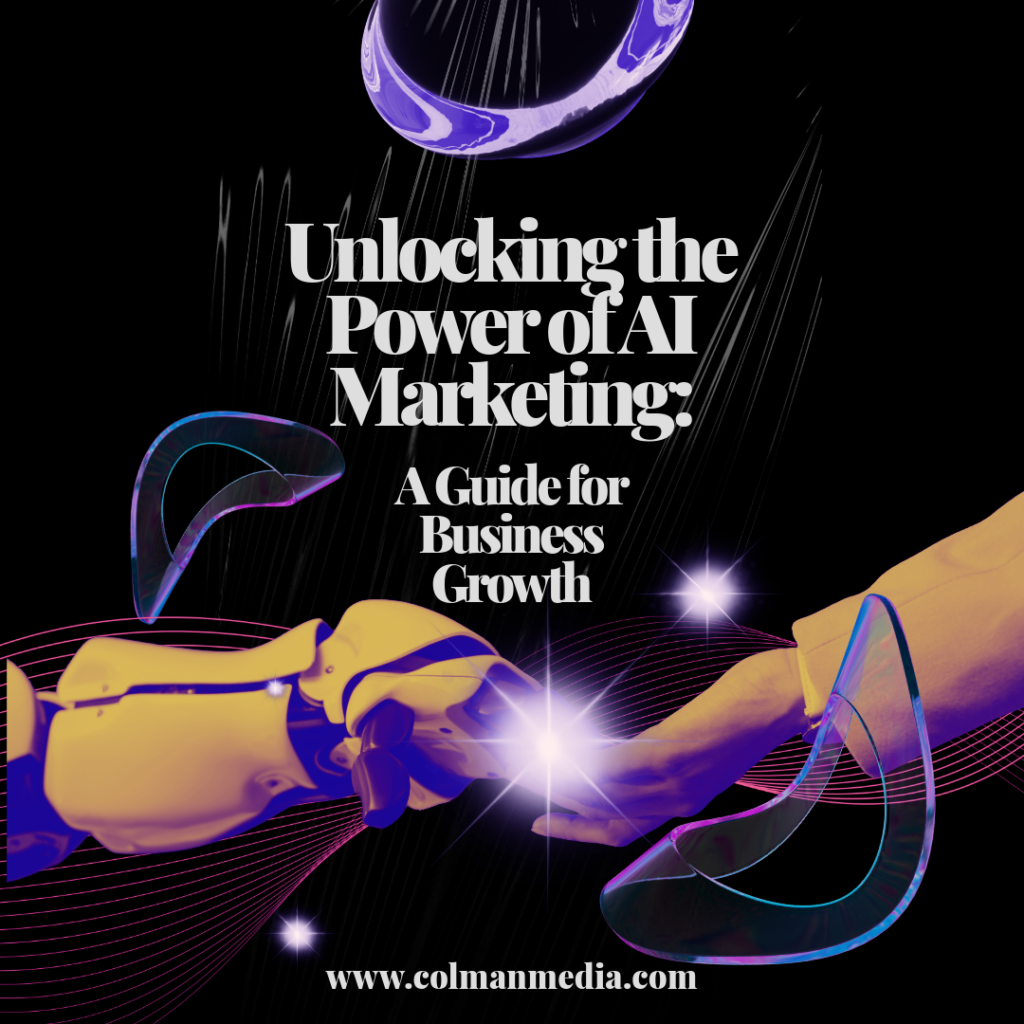In today’s fast-paced digital landscape, businesses of all sizes are constantly seeking innovative ways to stay ahead of the competition and drive growth. Enter AI marketing – a game-changing approach that leverages artificial intelligence to revolutionize how companies connect with their audience, optimize their online presence, and boost conversions. This comprehensive guide will walk you through the ins and outs of AI marketing, helping you understand its potential and how it can transform your business operations.
The Rise of AI in Marketing: A Paradigm Shift
Artificial intelligence has rapidly evolved from a futuristic concept to a practical tool that’s reshaping industries across the board. In the realm of marketing, AI has emerged as a powerful ally, offering unprecedented capabilities in data analysis, automation, and personalization. According to a recent report by Statista, the global AI market in marketing is projected to reach $107.5 billion by 2028, showcasing the tremendous growth and potential in this field.
For small to mid-sized businesses, entrepreneurs, and digital agencies, AI marketing presents an opportunity to level the playing field. By harnessing the power of machine learning and advanced algorithms, these entities can now access sophisticated marketing tools and strategies that were once the exclusive domain of large corporations with deep pockets.
Key Components of AI Marketing
AI marketing encompasses a wide range of technologies and applications, each designed to streamline and enhance various aspects of the marketing process. Some of the core components include:
- Natural Language Processing (NLP) for content creation and analysis
- Machine Learning algorithms for predictive analytics and personalization
- Computer Vision for image and video recognition
- Chatbots and virtual assistants for customer service
- Automated bidding systems for digital advertising
These technologies work in concert to provide businesses with powerful tools for understanding their audience, crafting compelling messages, and delivering them through the most effective channels.
Transforming Content Creation with AI
One of the most significant impacts of AI in marketing is its ability to revolutionize content creation. For businesses struggling to maintain a consistent flow of high-quality, engaging content, AI-powered tools offer a solution that can save time, reduce costs, and improve overall content quality.
AI-Driven Content Generation
Advanced language models, such as GPT-3 and its successors, have made it possible to generate human-like text on a wide range of topics. These AI writers can produce blog posts, social media updates, product descriptions, and even long-form articles with minimal human input. While they don’t replace human creativity entirely, they serve as powerful assistants that can help overcome writer’s block, generate ideas, and create first drafts at scale.
Benefits of AI Content Creation:
- Increased content production speed
- Consistency in tone and style across multiple pieces
- Ability to create content in multiple languages
- Cost-effective solution for businesses with limited resources
However, it’s crucial to note that human oversight remains essential. AI-generated content should be reviewed, edited, and refined to ensure it aligns with brand voice and meets quality standards.
Optimizing SEO Strategies with Artificial Intelligence
Search Engine Optimization (SEO) is a critical component of digital marketing, and AI is transforming how businesses approach this complex and ever-changing field. AI-powered SEO tools can analyze vast amounts of data to identify trends, predict algorithm changes, and provide actionable insights for improving search rankings.
AI-Powered Keyword Research and Content Optimization
Traditional keyword research methods can be time-consuming and may not always capture the nuances of user intent. AI tools can analyze search patterns, competitor content, and user behavior to identify high-value keywords and topics that are most likely to resonate with your target audience.
Moreover, these tools can provide real-time recommendations for optimizing existing content, suggesting improvements in areas such as:
- Keyword density and placement
- Content structure and readability
- Internal and external linking strategies
- Meta tags and descriptions
Case Study: AI-Driven SEO Success
A recent case study by Search Engine Journal highlighted how an e-commerce company implemented AI-powered SEO tools and saw a 43% increase in organic traffic within six months. The AI system identified underperforming pages, suggested content improvements, and helped the company target long-tail keywords that were previously overlooked.
Personalizing Customer Experiences with AI
In an era where consumers expect tailored experiences, AI marketing shines by enabling hyper-personalization at scale. By analyzing vast amounts of customer data, AI can help businesses create highly targeted marketing campaigns that speak directly to individual preferences and behaviors.
AI-Driven Customer Segmentation and Targeting
Gone are the days of broad demographic segmentation. AI algorithms can now create micro-segments based on a multitude of factors, including:
- Browsing and purchase history
- Social media interactions
- Device usage patterns
- Geographic and temporal data
This granular segmentation allows businesses to craft personalized messages and offers that are more likely to resonate with each subset of their audience, leading to higher engagement and conversion rates.
Implementing AI-Powered Recommendation Engines
E-commerce brands and content platforms can leverage AI to create sophisticated recommendation systems that suggest products or content based on user behavior and preferences. These systems learn and improve over time, continuously refining their suggestions to increase relevance and drive sales.
Key Benefits of AI Personalization:
- Increased customer satisfaction and loyalty
- Higher conversion rates and average order values
- Reduced cart abandonment
- More effective cross-selling and upselling
Automating Customer Interactions with AI Chatbots
AI-powered chatbots have emerged as a game-changer in customer service and engagement. These virtual assistants can handle a wide range of customer inquiries, provide product recommendations, and even process transactions, all while learning and improving from each interaction.
Benefits of AI Chatbots for Businesses
- 24/7 customer support without the need for human staff
- Instant responses to common queries, improving customer satisfaction
- Ability to handle multiple conversations simultaneously
- Seamless integration with CRM systems for personalized interactions
- Cost savings on customer service operations
According to a report by Juniper Research, chatbots are expected to save businesses $8 billion annually by 2022, highlighting their significant impact on operational efficiency and cost reduction.
Implementing AI Chatbots: Best Practices
To maximize the effectiveness of AI chatbots, businesses should consider the following best practices:
- Start with a clear understanding of your customers’ most common queries and pain points
- Ensure the chatbot’s personality aligns with your brand voice
- Regularly update and train the chatbot with new information and scenarios
- Provide a seamless handoff to human agents for complex issues
- Continuously analyze chatbot interactions to identify areas for improvement
Measuring and Optimizing AI Marketing Performance
As with any marketing strategy, measuring the performance of AI-driven initiatives is crucial for ongoing optimization and success. AI itself plays a significant role in this process, offering advanced analytics capabilities that can provide deep insights into campaign effectiveness and ROI.
Key Performance Indicators (KPIs) for AI Marketing
When evaluating the success of your AI marketing efforts, consider tracking the following KPIs:
- Conversion rates across different channels and campaigns
- Customer Lifetime Value (CLV)
- Customer Acquisition Cost (CAC)
- Engagement metrics (click-through rates, time on site, etc.)
- Return on Ad Spend (ROAS)
- Customer satisfaction scores
AI-Powered Marketing Attribution
Traditional marketing attribution models often struggle to accurately credit touchpoints in complex, multi-channel customer journeys. AI-powered attribution models can analyze vast amounts of data to provide a more nuanced understanding of how different marketing efforts contribute to conversions.
These advanced attribution models can help businesses:
- Identify the most effective marketing channels and tactics
- Optimize budget allocation across different campaigns
- Understand the full customer journey and its impact on conversions
- Make data-driven decisions for future marketing strategies
Continuous Learning and Optimization
One of the most powerful aspects of AI in marketing is its ability to learn and improve over time. By continuously analyzing performance data and customer interactions, AI systems can identify patterns and trends that humans might miss, leading to ongoing optimization of marketing strategies.
Embracing AI Marketing: Steps for Getting Started
For businesses looking to incorporate AI into their marketing efforts, here are some steps to get started:
- Assess your current marketing challenges and identify areas where AI could have the most impact
- Research and select AI tools that align with your specific needs and budget
- Start with a pilot project to test the effectiveness of AI in a specific area of your marketing
- Provide training to your team on how to work alongside AI tools effectively
- Continuously monitor and evaluate the performance of your AI marketing initiatives
- Scale successful AI implementations across other areas of your marketing strategy
As AI continues to evolve and become more accessible, businesses that embrace these technologies will be well-positioned to thrive in the increasingly competitive digital landscape. By leveraging AI for content creation, SEO optimization, personalization, and customer engagement, companies can achieve greater efficiency, improved ROI, and ultimately, accelerated growth.
The future of marketing is here, and it’s powered by AI. Are you ready to take your business to the next level?

